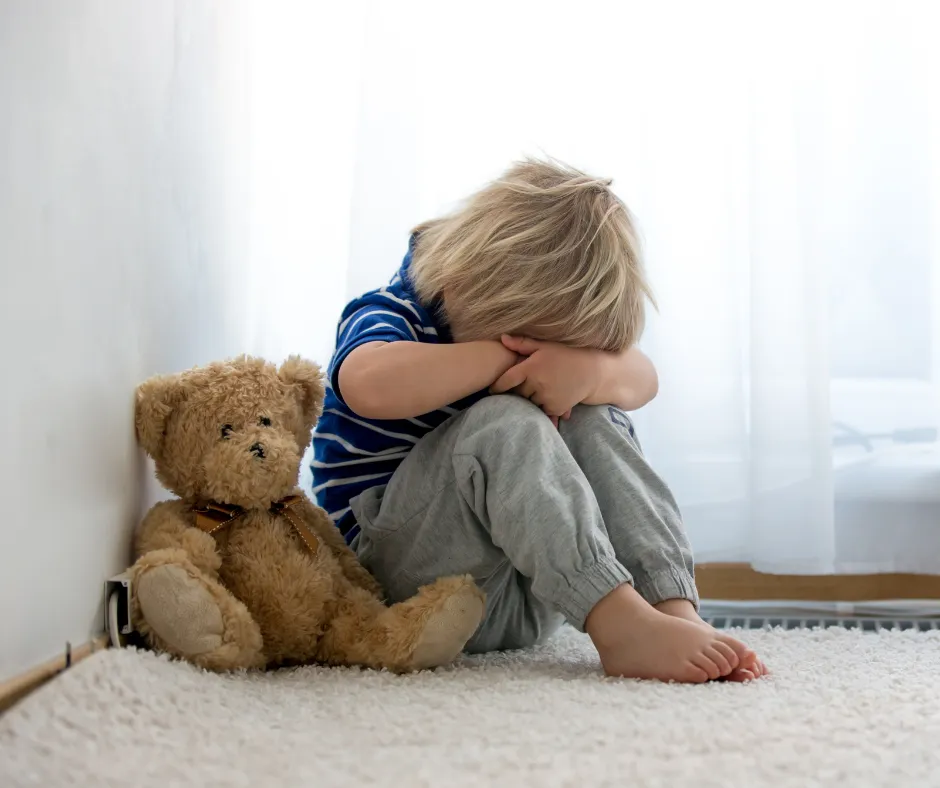Do you want to know the potential signs a child is being molested by a father? Find out the potential signs a child is being molested by a father as you keep reading.

Child abuse is a sensitive and concerning issue that demands immediate attention and intervention.
Recognizing signs of potential molestation by a father is crucial for protecting the well-being of the child involved.
This guide aims to provide parents, caregivers, and concerned individuals with insights into the signs that may indicate a child is being molested by their father.
Signs a Child is Being Molested by Father

Here are potential signs a child is being molested by the father:
1. You Notice Unexplained Physical Injuries on the Child
The presence of unexplained physical injuries, especially in sensitive areas, should raise concerns about potential molestation.
Bruises, cuts, or marks that cannot be attributed to normal activities or accidents may be indicative of abuse.
Careful observation and thorough investigation are essential when such injuries are identified.
2. You Notice Negative Behavioral Changes In the Child
Abrupt and drastic changes in a child’s behavior can serve as indicators of distress.
Watch for signs such as sudden withdrawal, aggression, mood swings, or a noticeable decline in academic performance.
Furthermore, behavioral changes may be an expression of emotional turmoil resulting from potential molestation.
3. The Child Displays fear or Avoidance of their Father
A child displaying fear or avoidance of their father may be signaling discomfort or anxiety.
Furthermore, when you notice consistent efforts to avoid being alone with their father or expressions of fear when questioned about interactions should be taken seriously.
Open communication and a supportive environment are crucial for addressing such concerns.
4. The Child Displays Regressive Behaviors
Molestation can disrupt a child’s emotional and psychological development.
Look for signs of regression in developmental milestones, such as bedwetting, speech regression, or reversion to behaviors typical of a younger age.
These regressive behaviors may be indicative of trauma.
5. The Child Exhibit Excessive Knowledge of Sexual Matters
If a child exhibits an inappropriate level of knowledge about sexual matters or engages in explicit sexual behaviors beyond their age, it may raise concerns about potential exposure to inappropriate content or experiences.
Monitoring a child’s exposure to media and addressing any concerning behaviors is essential.
6. The Child Displays Sudden Resistance to Physical Contact
A child who suddenly becomes resistant to physical contact, especially with their father, can be signaling discomfort.
This includes reluctance to hugs, kisses, or any form of physical closeness.
Such changes in behavior warrant careful attention and exploration of the underlying causes.
7. The Child Displays Unexplained Fear of Specific Places or Activities
Children who have experienced molestation may associate the traumatic experience with specific places or activities.
Pay attention if a child expresses unexplained fear or discomfort related to certain locations or events. Also, this may provide important clues about their experiences.
8. You Notice Changes in the Child’s Sleeping Patterns
Molestation can disrupt a child’s sense of security, leading to changes in sleep patterns.
Watch for signs of nightmares, night terrors, or difficulty sleeping. Changes in sleep behavior may indicate emotional distress and should be addressed with sensitivity.
9. The Child Displays Sudden Onset of Anxiety or Depression
Molested children may experience heightened anxiety or depression.
If a child exhibits symptoms such as withdrawal, sadness, or persistent mood changes, it’s crucial to explore the underlying causes.
Also, creating a supportive environment and seeking professional help are essential in addressing emotional well-being.
10. You Notice Inappropriate Sexual Behavior From the Child
Children who have experienced molestation may display inappropriate sexual behaviors or language.
This can include mimicking explicit acts or using sexual language beyond their age level. Furthermore, identifying and addressing such behaviors promptly is crucial for the child’s well-being and safety.
In conclusion, recognizing signs of child molestation is a crucial step in protecting the well-being of children.
If you suspect that a child is being molested by their father or any other individual, taking prompt and appropriate action is essential.
By advocating for the child’s safety and seeking professional help, we can contribute to creating a safer environment for all children.
Related Searches:
